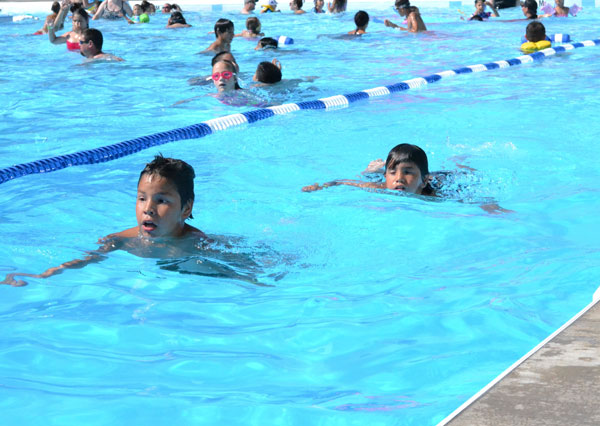While the warm weather excites many to get outside for a walk or to the lake, a Prince Albert safety advocate is reminding you to take preventative measures for heat-related illnesses.
Parkland Ambulance’s director of public affairs, Lyle Karasiuk, said you should be aware of the symptoms of heat exhaustion or heat stroke and what to do when symptoms strike.
Heat exhaustion is typically signalled through skin rashes, muscle cramps, dizziness or fainting, nausea or vomiting, heavy sweating, a headache, rapid heart beat, extreme thirst, dark urine and decreased urination.
Common symptoms of heat stroke—a medical emergency—are high body temperature, confusion and lack of coordination, dizziness or fainting and no sweating, but very hot, red skin.
If you suspect someone has heat stroke, call 911 immediately and start cooling the person down. Move them into a cool place, apply cold water to large areas of the skin and fan them as much as possible.
“We often see people with heat-related instances in two groups,” explained Karasiuk.
“First of all, when we have an extended period of heat, so once we get past five, maybe seven days, and then we start seeing people who are often (lacking) mobility.”
He said heat waves lasting an extended period of time don’t give people’s bodies or homes the chance to cool down.
People with decreased mobility, who can’t quickly grab what they need when they feel hot, are often seniors. The elderly tend to also have other health conditions and medications, which can impact how your body moves fluid.
Another at-risk population is the homeless. It may be harder for them to find shelter or access nutritious food and water—all things that can prevent heat-related illnesses.
“You need to stay hydrated during the day. We want people to continually drink fluid, and that should be some good old fashioned water,” said Karasiuk.
“I know a Slurpee, a soda, or even an alcoholic beverage really tastes good on a hot day, but that does nothing to rehydrate your body. In fact, it actually, those types of beverages like soda or alcohol, actually take more fluid out because they tend to dehydrate you more than anything else.”
He stressed the importance of not leaving your pet or child in a hot vehicle, even if you think it will just be for a few minutes. Karasiuk said people tend to forget they left a pet or child in the car, and get hung up visiting or shopping around.
“Neither of those two groups can often open a window or signal for help,” he said.
“Your car temperature can go up dramatically in a few short minutes that they will literally cook and suffer and ultimately could die.”
Karasiuk said symptoms of heat stroke, such as shortness of breath or fatigue, are similar to symptoms of COVID-19. If you’ve taken measures to cool down and still feel sick, he said to phone HealthLine 811 for advice.
Environment Canada issued a heat warning for much of central and southern Saskatchewan, including Prince Albert and surrounding areas, on Wednesday and Thursday.
Heat warnings are issued when the humidex value is expected to reach 40 C or more or when the temperature is expected to reach between 29 C and 40 C.
While temperatures are expected to cool off a little this weekend, early forecasts show hot temperatures in the high 20s and low 30s returning next week.


